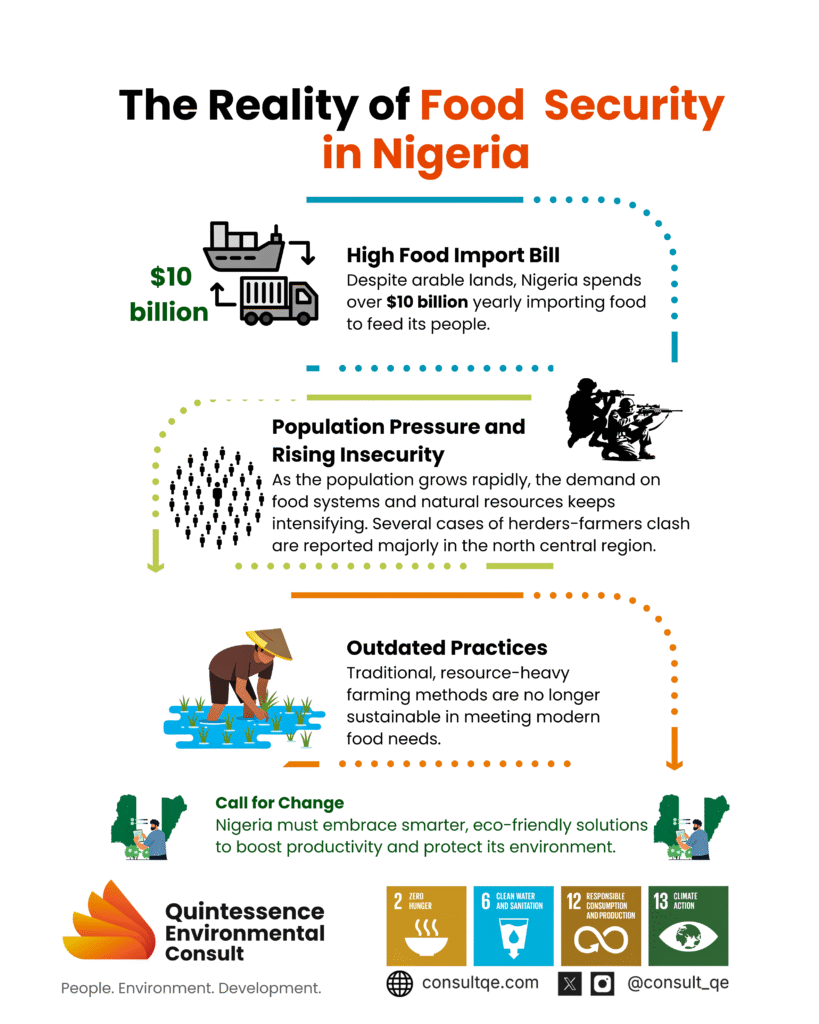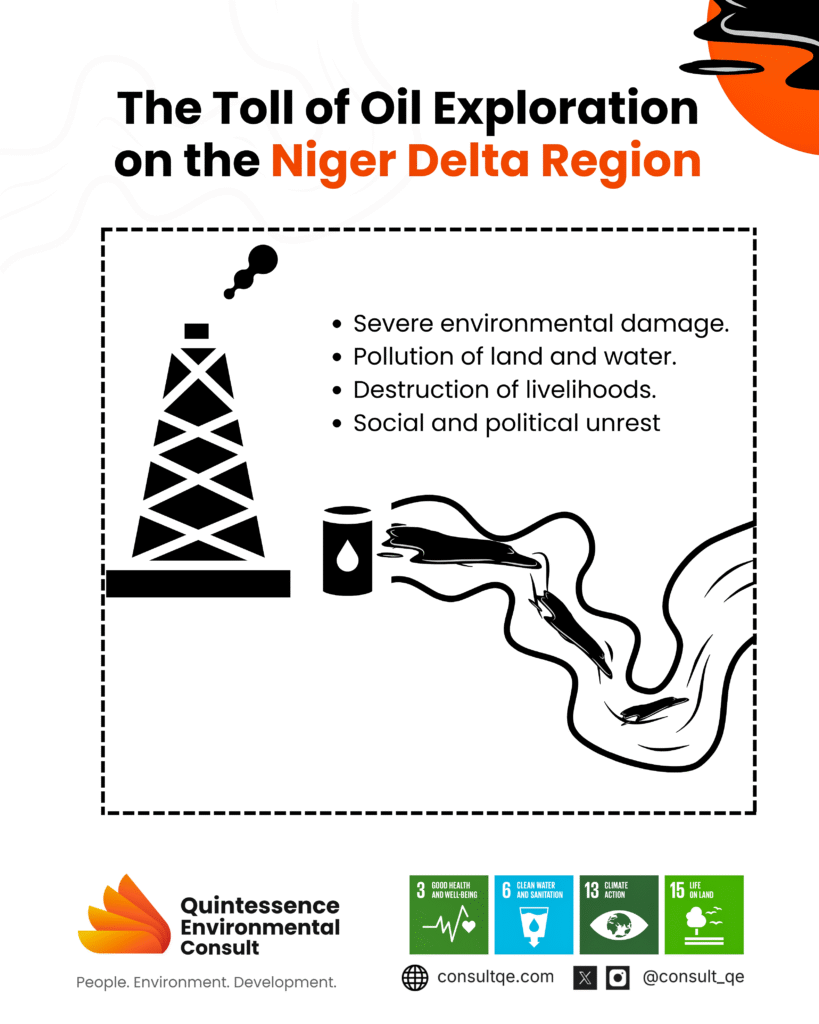Precision Agriculture for Sustainable Food Security in Nigeria

Nigeria, Africa’s most populous nation, stands at a critical juncture where a rapidly increasing population meets the urgent need for enhanced food security and sustainable agricultural practices. Nigeria currently spends over $10 billion annually on food imports, despite its vast agricultural potential, highlighting a significant production gap [9]. The conventional, often resource-intensive farming methods, particularly those used by the smallholder farmers, are no longer sufficient to meet soaring food demand while mitigating environmental impact. Precision agriculture, also known as smart farming, directly addresses this by optimizing growing conditions.
WHAT IS PRECISION AGRICULTURE?
Gone are the days when farming was purely about intuition and experience. Modern agriculture is undergoing a profound transformation, driven by an array of sophisticated technologies. This is not just about bigger tractors; it is about smarter farming, managing every inch of your land with unprecedented accuracy and efficiency. Welcome to the world of Precision Agriculture (PA), where data is the new harvest.
Nigeria’s Strategic Transition to Cleaner Energy

Nigeria bears the brunt of decades of severe environmental degradation due to its dependency on oil for fuel. Oil spills, a tragic and common occurrence stemming from pipeline vandalism, operational failures, or inadequate infrastructure, have wreaked havoc on ecosystems and shattered livelihoods. Beyond the immediate devastation, carbon emissions from oil-dependent infrastructure contribute significantly to global climate change. This immense environmental toll, compounded by persistent social unrest fueled by resource control disputes and perceived marginalization, underscores an urgent and undeniable need for a new direction. This blog delves into Nigeria’s vital shift towards a promising future fueled by cleaner and more sustainable energy sources.
The Oil Exploration’s Toll On Niger Delta Region

Key Takeaways Oil exploration has caused severe and long-lasting environmental damage in the Niger Delta region. Gas flaring, oil spills and untreated waste have destroyed ecosystems, including Africa’s largest mangrove forests, and have led to health risks and loss of biodiversity. Pollution has destroyed farming and fishing livelihoods, reduced agricultural productivity by up to 60% and led to major health issues like cancer, birth defects and reduced life expectancy. Failure to address local grievances has fueled instability in the Niger Delta region. The 2011 UNEP cleanup plan for Ogoniland remains unfulfilled and underfunded, reflecting poor governance and deep-seated political apathy. Farming and fishing, which support 70% of local jobs, are collapsing. Exposure to polluted water and air has led to respiratory diseases, cancer and also a 10-year drop in life expectancy in affected areas. The consequences of decades of oil exploitation have triggered the rise of militancy and insurgency in the Niger Delta. To break the cycle, Nigeria must enforce environmental laws, fund cleanup efforts, support affected communities, and shift toward renewable energy. Only a systemic overhaul can restore the Niger Delta and ensure long-term environmental and social justice. Introduction Did you know that 90% of Nigeria’s export earnings come from crude oil? And the majority of its exploration sites are situated in coastal areas specifically in the Niger Delta region. For decades, oil exploration activities have fueled the nation’s economy without a comprehensive sustainability framework for safeguarding the environment, communities, and local economy. Despite the major earnings, oil exploration in Nigeria’s Niger Delta has not met the expectations for sustainable development due to harmful impact from oil spills, gas flaring, and land degradation. Decades of oil spills, gas flaring, and untreated effluent discharges from facilities have degraded ecosystems in the coastal regions. As sea levels rise and floods threaten coastal communities, the United Nations warns that over a million people in this region face heightened risks of waterborne diseases and displacement. Immediate measures need to be taken to address the situation to protect Nigeria’s economic interests while limiting environmental vulnerability. The question now is, “How did Africa’s largest oil-producing region become a sacrifice zone?” This is not just an environmental crisis, it is a story of exclusivity. Let us dive in. The Legacy of Nigeria’s Oil Exploitation Oil was first discovered in the Niger Delta in 1956 by Shell-BP in Oloibiri, Bayelsa State. Multinational corporations like Chevron and ExxonMobil also tapped into this oil gold rush, exploring billions of barrels of oil, generating immense wealth for Nigeria, yet leaving its coastal regions in ruin as they gained little or none of the wealth, only pipelines, spills, and flames. In the Niger Delta region oil spillage usually occurs almost daily, with an estimated 240,000 barrels spilled yearly (compared to 4,000 barrels in the U.S. Gulf Coast). This results from the release of crude oil products into the environment through their extraction, refining, transportation, storage of petroleum, and illegal bunkering. (1) In 2024, NOSDRA reported that 29,498.449 barrels of oil (4,659,174.923 liters) were spilled into inland waters, on land, swamps, shorelines, and open seas. (3) See image below. A 2011 UNEP report exposed the devastation in Ogoniland: poisoned water, dead ecosystems, and a $1 billion cleanup plan that is still incomplete today. UNEP reported that cleaning up Ogoniland alone could take 30 years. Decades of oil exploration have left coastal communities grappling with severe environmental, economic, and social consequences. While oil wealth has enriched a few, the people living in these regions suffer from pollution, health hazards, and economic neglect. (7) Environmental DegradationThe effect of oil exploration has always been a never-ending crisis in Nigeria. As of 2022, Nigeria accounts for 9% of global gas flaring, wasting resources and polluting the air (4). Gas flaring emits harmful pollutants like CO₂, methane, and benzene, known to cause cancer and respiratory diseases. Additionally, it releases sulfur and nitrogen oxides, which react with rainwater to form acid rain. This acid rain devastates crops, corrodes buildings, and disrupts aquatic ecosystems, posing severe risks to both human health and the environment. Similarly as oil spillage affects our ecosystem, report highlights the severe destruction of the Niger In addition, Oil exploration demands extensive land clearance for drilling sites, pipelines, and access roads, resulting in severe ecological damage. Forests are destroyed, diminishing their ability to absorb CO₂ and accelerating climate change. Wildlife habitats are fragmented or erased, pushing endangered species closer to extinction and disrupting fragile ecosystems. Delta mangroves—the largest mangrove ecosystem in Africa—which have suffered extensive degradation; likewise fish populations have declined by over 60%, crippling local economies. Once oil and marine tar residues are deposited on or around the mangroves, they stick to the plant surfaces, adsorbing to oleophilic surfaces of both flora and fauna. The oil coats the breathing surfaces of roots, stems, and seedlings, contaminating surrounding sediments and their sessile intertidal or burrowing fauna. (5) Economic and Health ImpactsLivelihoods have been destroyed as fishing & farming contribute to 70% of local jobs, now collapsing due to pollution(15). A 2020 World Bank study found that oil spills reduce agricultural yields by 30-60%. According to Campbell (2010), the oil pollution in Olobiri and Ijaw lands has eroded soil nutrients, thus sharply reducing agricultural productivity. A study reveals that infants in Nigeria face twice the risk of dying within their first month if their mothers have lived near an oil spill site before conception. (14) In 2017, UNEP scientists discovered an 8 cm layer of refined oil floating on the groundwater serving the Nisisioken Ogale wells. This was reportedly connected to an oil spill six years before 2017. UNEP found benzene (a carcinogen) in drinking water at 900 times the World Health Organization’s acceptable limit (10 micrograms per liter (µg/L)). Many children suffer from lead poisoning, skin diseases, and birth defects. Due to prolonged exposure to environmental pollution from crude oil production, the life expectancy in the Niger Delta is approximately 10 years lower than the national average in Nigeria. (7) Social and Political
